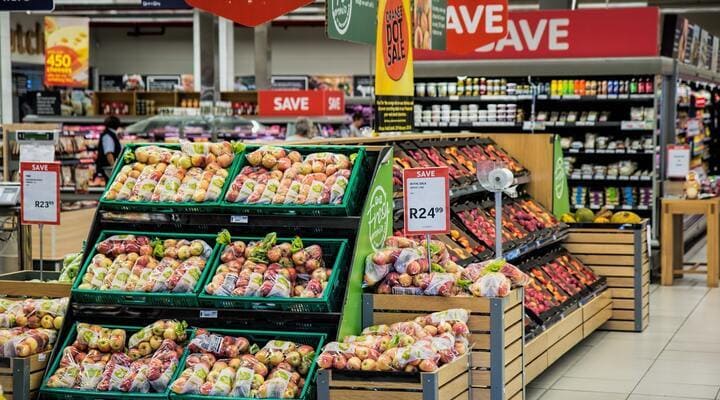The main brands in the region are Leclerc, Auchan, U, Intermarché, Carrefour and Casino. They alone hold 85% of the market share. The hard discounters are also part of this landscape. We note an increase in customer base in these brands of more than 60% in the space of 10 years. The sector's turnover exceeds 210 billion euros, with more than 700,000 employees, 89% of whom are directly engaged on permanent contracts. The payroll was 15.7 billion euros in 2020.
PESTEL analysis of the retail sector
Politics
The political domain involves the stability of states and the ease of trading with the international market for everything concerning certain types of products. Indeed, large distributions work on a regular basis with foreign countries to be able to have a large number of references on their shelves and thus satisfy the consumers.
Note also that each country has its own rules and distributions must take into account the various laws and regulations before bringing a particular product to the market.
Economic
The retail sector inevitably has a great influence on the economy of a country since food products are an essential expense for all consumers.
This is an industry where competition is very high, but it also attracts a very large number of customers every day, regardless of the brand. The health crisis has not impacted this type of business, which has remained open, as it is obviously considered an essential business.
While some customers tend to abandon hypermarkets that are too large in favor of smaller sales areas, the fact remains that the brands in the sector are not experiencing particular difficulties.
Sociological
The clientele in retailing is very large. There is no specific targeting from the brands. The most important thing, therefore, is to be able to satisfy everyone and also to fight against competitors.
The behavior of consumers vis-à-vis supermarkets is different from that analyzed in other sectors. In 2020, more than 80% of customers shop at the supermarket closest to their homes.
Most retain customers with a loyalty card, which allows them to accumulate points and earn discounts on all kinds of products.
Technological
As in all other business sectors, large retailers have been forced to adapt to technological innovations. Automated checkouts, or click and collect. Everything is done to facilitate shopping and travel for customers.
Since the onset of the health crisis, click and collect has taken on considerable importance in the purchasing habits of customers.
Hypermarkets are increasingly competing with specialized stores by highlighting sales areas dedicated to technologies, with sales advisers specially present to help customers in their choices.
In 2020, large-scale distribution will be closer to the needs and expectations of consumers, with an increased presence on the internet and, more particularly, on social networks. The latter makes it possible to fight ever more effectively against competitors by maintaining permanent interaction with internet users.
Ecological
Large retailers, like a majority of other companies, have made an extensive effort in recent years to adapt to the ecological demands of partners and customers alike. Indeed, organic products made their appearance on the shelves a few years ago, and the references continue to increase even today. Consumers are in great demand for this type of product which has gradually spread to all areas of activity, food, of course, but also household products and textiles.
In addition, the bags become reusable at will by the customer and many brands issue paper bags for click and collect.
Legal
At the legal level, large distributions are subject to laws that protect consumers. The opening hours, as well as the days, are regulated in order not to give them an advantage over other small businesses.
The withdrawal conditions for technological products or household appliances are the same as in specialized stores.
The obligation of transparency in the origins of products is also in place.
Sources : Je bosse en grande distribution









